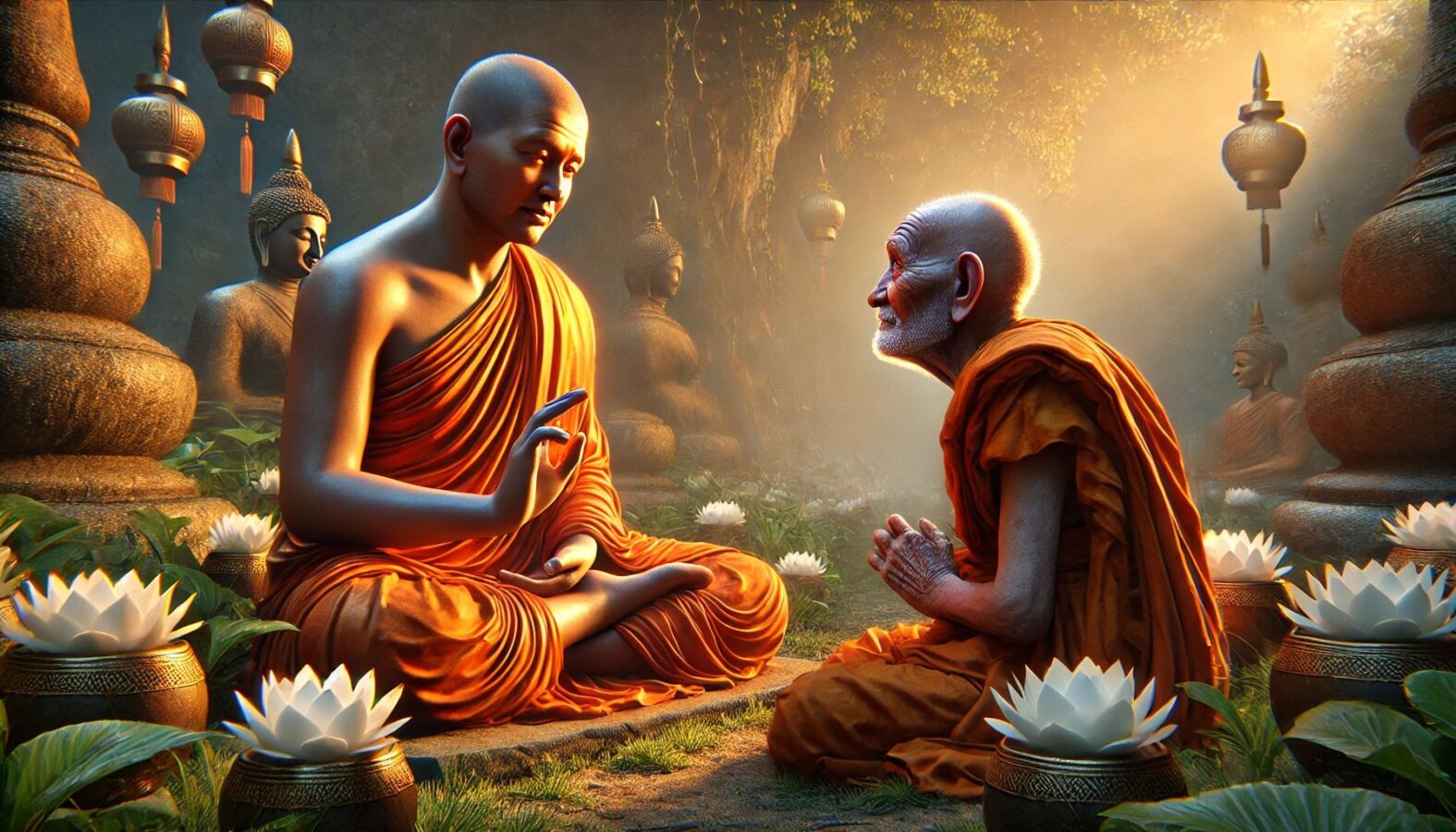
Date: 09/06/2025 09/07/2025
Location: Star River Meditation Center
Teacher: Yunquan Huang
Dharma Talk
The Death of Vidhūṣaka
Thus have I heard:
At one time, there lived a noble friend of King Aśoka named Vidhūṣaka. He once journeyed to a remote region. Upon his return, he fell ill, and his condition gradually worsened. Painful boils appeared upon his head, and his strength declined by the day.
When King Aśoka heard of his dear friend’s suffering, he immediately dispatched physicians to care for him. After careful diagnosis, the healers concluded:
“Only by drinking fresh cow’s milk can his strength be restored and his vitality regained.”
And so, Vidhūṣaka traveled to a distant land known for abundant milk. That land was the kingdom of Puṇḍravardhana, where the people followed heterodox teachings and adhered to non-Buddhist paths.
A disciple of the Buddha came to know of this and reported it to the King. Hearing that the country followed heretical views, King Aśoka secretly dispatched agents to investigate.
After some time, the emissaries returned, bringing with them the texts and disciples of those outside the Dharma. Upon reading their doctrines, King Aśoka was enraged. In a fit of fury, he decreed:
“Let all the heretics of Puṇḍravardhana be exterminated!”
Thus, in a single day, more than 108,000 people were slain.
Among them was a devout follower of a non-Buddhist path who, in his misguided reverence, had painted an image of the Buddha bowing before his own deity. When this was reported to the King, he seized the man’s kin and had them burned alive.
Moreover, King Aśoka proclaimed:
“Whosoever brings me the head of that heretic shall be rewarded with gold!”
Meanwhile, Vidhūṣaka remained in the cattle station, drinking milk daily. Yet his condition did not improve. His long illness had rendered him gaunt and disheveled, with unkempt hair and beard, his garments torn and body foul-smelling.
The woman who oversaw the cattle herd saw his pitiful state and thought:
“This filthy man must be the heretic the King is hunting.”
She whispered to her husband:
“Slay this man, cut off his head, and present it to the King. We shall be rewarded with gold!”
Hearing this, her husband took up a blade and struck Vidhūṣaka down. Weak and helpless from prolonged illness, Vidhūṣaka could not resist. He was killed instantly.
When the couple presented the severed head before King Aśoka, the King was shocked:
“This is the head of Vidhūṣaka, my friend!”
Overcome with grief and horror at the tragic mistake, he lowered his head in silence, his heart heavy with remorse.
Then one of his ministers came forward and offered counsel:
“Great King, the suffering you feel now is the same pain you have brought upon others. You should bring joy to your people, not strike fear through death and destruction.”
King Aśoka, moved by these words, came to his senses. He immediately revoked the order of slaughter and ceased the persecution of those who held different beliefs.
Later, many bhikkhus pondered:
“What past karma did Vidhūṣaka commit to suffer such a fate—to be beheaded in this life?”
They went to the venerable Upagupta and inquired.
Upagupta replied:
“In a past age, Vidhūṣaka was a hunter who took delight in slaying deer. In the heart of a forest, there was a clear pool of water where many deer came to drink. The hunter often laid snares and traps to catch and kill them.
At that time, the Bodhisattva—before his final birth as the Buddha—was living as the ascetic Siddhārtha. One day, he came to that forest pool, bathed, ate, and sat beneath a tree to rest.
The deer, sensing a human presence, did not approach the water. The hunter, watching from afar, grew angry:
‘ The deer have fled because of this man!’
Enraged, he took up his sword and charged at the ascetic, intending to strike him down.
That hunter was Vidhūṣaka. Because he killed many deer, he has long suffered from bodily afflictions in this life. And because he once raised his sword against the Bodhisattva, he has now met death by the blade.”

